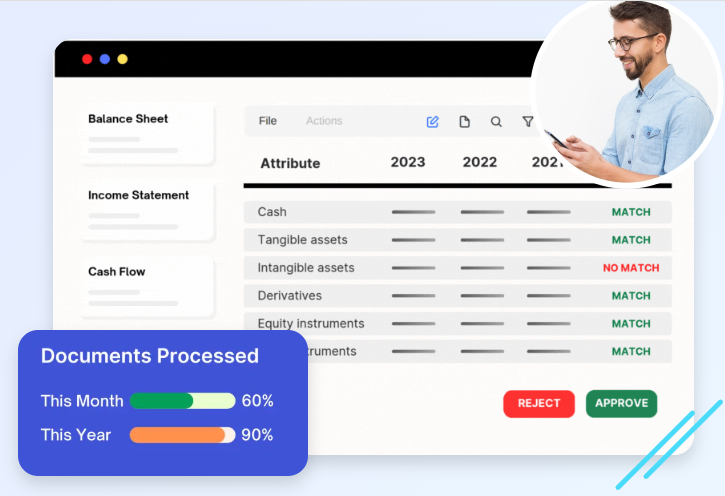How Cloud Services Drive Innovation in Startups

Launching a startup is exciting, but it can also feel like building a plane mid-flight; every decision counts, and the runway seems short.
You have bold ideas but limited time, money, and people to make them real. Previously, setting up the technology to test those ideas was a significant obstacle.
Today, cloud services have changed the game. They’re not just about storing files online; they’re about unlocking capabilities that used to be reserved for big corporations. For startups, the cloud is like having a world-class tech department on demand, ready to scale with your ambitions.
It’s the quiet engine that can power big leaps forward in innovation. Let us explore HOW!
1. Lowering the Barrier to Entry
One of the toughest challenges for a startup is getting started without burning through cash.
In the past, businesses had to buy servers, hire IT teams, and maintain expensive infrastructure before even testing an idea. Today, cloud services play a key role in changing that; you can rent what you need when needed.
It’s like renting a high-end kitchen by the hour to test your recipes, instead of buying a restaurant before knowing if customers will like your food. This means founders can experiment more freely and pivot faster when ideas need adjusting.
Lower entry costs free up resources for actual innovation instead of just “keeping the lights on.”
2. Fast Experimentation and Prototyping
Some of history’s greatest inventions weren’t perfect from the start. The Wright brothers’ early planes were unstable, and the first electric cars in the 1800s had minimal range.
But fast prototyping allowed improvements. Cloud services give startups the same trial-and-error advantage they have in the digital world.
- Startups thrive on testing ideas quickly and cheaply. With cloud-based platforms, you can set up servers, databases, and development environments in hours instead of weeks.
- Many cloud providers also offer “sandbox” environments, letting you experiment without affecting live operations. This means mistakes become learning opportunities rather than costly disasters.
3. Scaling Without Fear
Scaling is a good problem until your systems crash due to too many users. With traditional infrastructure, you’d have to predict your growth and invest heavily in advance. But the cloud grows with you.
If your app suddenly goes viral (perhaps thanks to a well-placed TikTok mention), you can instantly increase your computing power to handle the surge.
This elasticity removes the fear that “too much success” might destroy a business. Without that fear, teams are more confident in launching bold ideas.
4. Access to Advanced Tools Without Heavy Investment
These tools don’t just save money; they let small teams play in the big leagues. And when you can compete on features, not just price, you open the door to true innovation.
- Artificial intelligence, machine learning, and big data analytics used to be available only to corporations with huge budgets. Now, startups can tap into these through cloud-based APIs and services.
- Want to personalize recommendations? Cloud-based AI models can be integrated without hiring a whole data science team.
5. Enabling Global Collaboration
Cloud services also dissolve geography. Your lead developer might be in Berlin, your designer in Manila, and your marketing partner in Toronto, all working together as if they’re in the same room.
Collaboration platforms run on the cloud, ensuring everyone has the latest version of files, updates, and discussions. This is more than just convenience; it allows startups to recruit the best talent anywhere in the world, not just in their local city.
This global reach often sparks fresh perspectives. A designer in one culture might solve a problem differently from someone in another, and those diverse inputs can shape more creative products.
6. Data-Driven Decision Making
Of course, data can be overwhelming. It’s tempting to measure everything and become paralyzed by too much information. The key is knowing which metrics move your business forward and ignoring the rest.
The good news? Many cloud tools help filter the noise so you can focus on what matters.
- The cloud doesn’t just store data; it helps you make sense of it. Dashboards, analytics, and reporting tools give startups real-time insights.
- Instead of guessing what customers want, you can see their behavior, track engagement, and identify trends early.
- This ability to adapt quickly, based on hard evidence, helps avoid costly missteps and keeps innovation on track.
7. Future-Proofing the Business
Technology changes quickly. What’s cutting-edge today can become outdated in a few years or months. Cloud providers continuously update their services, meaning startups benefit from the latest features without doing the heavy lifting themselves.
It’s like leasing a car and getting a free upgrade every year without having to trade in or negotiate. This ongoing evolution ensures startups stay competitive without reinvestment in new hardware or systems.
Final Thoughts
Cloud services aren’t just a technical upgrade but a mindset shift for startups. They remove heavy upfront costs, reduce the risks of experimentation, and make powerful tools available at the click of a button.
Importantly, they foster agility, helping young companies adapt to changing markets and technologies without losing momentum.
In a world where innovation is the main currency of success, the cloud levels the playing field, letting small teams compete with industry giants. Startups still need creativity, grit, and a clear vision, but with the right cloud tools, those qualities have a better chance of translating into real-world impact and lasting growth.


 English
English 














































































































































































































































































































































































































































































































































































































































































































































































































































































































































































































































































































































































































































































































































































































































































































































































































































































































































































































































































































































































